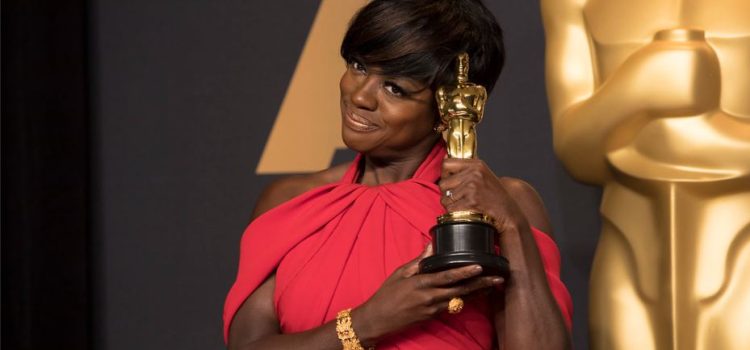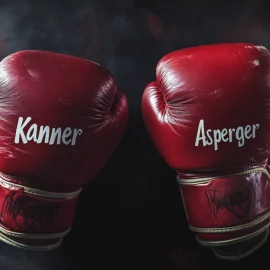

This article is an excerpt from the Shortform book guide to "Finding Me" by Viola Davis. Shortform has the world's best summaries and analyses of books you should be reading.
Like this article? Sign up for a free trial here.
What does it take to become a successful actor? How can someone overcome self-doubt and imposter syndrome in the entertainment industry?
Viola Davis’s acting journey is a testament to perseverance and talent. From her early inspiration watching Cicely Tyson to her groundbreaking roles in Hollywood, Davis’s story is one of determination and growth.
Keep reading to discover how Davis transformed her childhood dream into a remarkable career.
Image source: Flickr
The Acting Dream
For Viola Davis, acting was a dream from an early age. One night, when she was about nine years old, she was watching TV. She saw Cicely Tyson performing in The Autobiography of Miss Jane Pittman. Davis had never seen a dark-skinned actor before—someone that looked like her. It was then that Davis knew she wanted to be an actor.
Not long after, Davis had her first performance for a skit competition hosted by Central Falls Parks & Recreation. She and her sisters wrote an original skit called “The Life Saver Show.” According to Davis, acting was more than something she enjoyed doing. If she became successful, acting could be a way to build a more stable life for herself. But she explains that the process of becoming a character was also healing.
Acting Mentorship
Davis became committed to becoming an actor, taking advantage of every opportunity she could to pursue her dream career. When she was 14, she got involved with Upward Bound, a college preparatory program for underserved high school students. She took drama as an extracurricular. There she met Ron Stetson, an actor and instructor, who not only taught Davis the fundamentals of acting but also made her believe that she was a true artist.
Davis’s high school science teacher encouraged her to apply for the Arts Recognition and Talent Search Competition (ARTS). Davis applied and won a spot. Her talent was noted by many of the attendees, and she was awarded the title of “Promising Young Artist.”
Rhode Island College
After graduating from high school, Davis received a full scholarship to attend Rhode Island College. Despite her early achievements, Davis still doubted she could make a living as an actress and took English and education classes instead. Working multiple jobs and still struggling to feed herself, Davis felt lost and out of place. She explains she fell into a deep depression that lasted until she finally made the decision to switch her major to theater and really give acting a shot. By the time she graduated in 1988, Davis was being recruited for master’s programs in theater all over the country.
(Shortform note: Davis’s experience at Rhode Island College mirrors the widespread challenges faced by first-generation students of color in higher education. Statistics reveal that such students often grapple with financial hardships, poor preparation due to systemic inequities in pre-college education, and feelings of alienation in predominantly white institutions. These factors add up and result in higher dropout rates and mental health challenges, underscoring the need for comprehensive support systems, financial aid programs, and initiatives promoting campus diversity and inclusivity.)
Davis notes that, even as others continued to recognize her success, she still felt trapped by the self-doubt and fear that had plagued her childhood. She explains that others’ affirmations of her talent were a poor replacement for true self-love, which she still lacked.
| The Nature of Imposter Syndrome Davis’s self-doubt and fear despite her apparent success is emblematic of what’s known as impostor syndrome, a psychological pattern where individuals doubt their achievements and fear being exposed as frauds, highlighting how praise from others often doesn’t change our own doubts and insecurities. Impostor syndrome is particularly prevalent among people of color, women, and other marginalized populations that face systemic barriers or heightened expectations, which can exacerbate feelings of self-doubt. To counteract impostor syndrome, experts recommend practices such as acknowledging and documenting your achievements, seeking feedback from trusted peers or mentors, and challenging negative thought patterns through cognitive behavioral techniques to foster a more objective view of your own abilities and accomplishments. |
Davis’s First Paid Acting Job
After graduating from Rhode Island College, Davis continued to pursue acting. She received a full scholarship to participate in a six-week summer program at Circle in the Square Theatre School, which offers programs and training for aspiring actors, directors, and playwrights. Here, she was mentored by Alan Langdon, whom she calls one of her greatest teachers. Davis took whatever jobs she could get to pay for her housing and living expenses. She worked in factories, as a telemarketer, and handing out flyers in Times Square for a friend’s play. After that summer in New York, Davis got her first professional acting job with Trinity Repertory Company, a renowned regional theater in Rhode Island.
(Shortform note: While Davis remarks on the positive experience she had at the Circle in the Square Theater School, many alumni have criticized the institution for its Eurocentric reading material, lack of diverse faculty and leadership, erasure of cultural backgrounds, and institutionalized racism. In 2019, alumni came together to write an open letter to the school outlining their grievances and presenting a list of demands, including the need for a third-party investigation, a public apology, and mandatory Diversity, Equity, and Inclusion training for all faculty and staff.)
The Juilliard School
But Davis wanted to land bigger roles. She attended Juilliard from 1989 to 1993. She earned a scholarship to pursue a professional development opportunity outside of her normal coursework. She traveled to Gambia with a small group of students to study the dance, music, and folklore of several West African ethnic groups.
Upon her return to Juilliard, Davis presented a one-woman performance, which she described as the culmination of everything she’d learned in West Africa. The performance was met with critical acclaim, leading to her recruitment by Mark Schlegel of the J. Michael Bloom Agency. The highly regarded New York talent agency was so impressed that Schlegel offered her a contract even before she had graduated from Juilliard.
Davis’s Life as a Working Actor
However, even after being booked by a talent agency, Davis’s career didn’t take off. She struggled to get auditions and book parts. Davis reflects that many successful actors talk about not compromising their values, but when you’re struggling to make rent, you don’t always have a choice in the roles you take. She explains that it’s a privilege to be able to choose the parts you play.
(Shortform note: Davis’s initial struggles to find work, despite being represented by a talent agency, underscore the precarious nature of acting as a career path where job security is virtually nonexistent and financial pressures are a constant. As Davis describes, the majority of working actors have to string together roles—often sporadically offered—with no guarantee of a steady income. A report from the Screen Actors Guild‐American Federation of Television and Radio Artists (SAG-AFTRA) revealed that the median income of its members is $46,960. For many, this means living paycheck to paycheck, with the specter of unemployment always looming.)
Moreover, Davis was coming up against the interconnected forces of racism, colorism, and sexism. The few casting directors who were casting for roles for women of color were looking for “light-skinned” women or women who were more racially ambiguous. More often than not, Davis says, she found herself getting auditions for parts playing crack-addicted mothers or other roles equally steeped in negative racial stereotypes.
Breakout Roles
Davis describes getting her big break when she landed the role of Vera in August Wilson’s Seven Guitars, directed by the renowned Lloyd Richards. The show would travel to Chicago, Boston, San Francisco, and LA before debuting on Broadway the following year.
(Shortform note: Lloyd Richards was an American theater director, actor, and educator. He is best known for his work as the first African American director to win a Tony Award for Best Direction of a Play, which he received for his work on another August Wilson play, Fences, in 1987. Davis would later act in the on-screen adaptation of Fences opposite Denzel Washington, ten years after Richards passed away.)
The show premiered on Broadway on March 28, 1996, and many of Davis’s idols attended, including actresses like Halle Berry and Angela Bassett. According to Davis, her opening performance at the Walter Kerr Theatre was everything she had dreamed of when she first imagined becoming an actress—standing ovations, flowers, and fans waiting at the stage door. Davis’s parents were in the audience on opening night, and Davis could see the pride on their faces. Davis’s performance as Vera also earned her a Tony nomination. Though she wouldn’t win her first Tony for a few years, the nomination gave her further validation of her talent.
(Shortform note: In a review of Seven Guitars published in The New York Times, a critic called the play the highlight of that year’s theater season. He described the play as lyrical and moving, specifically commending the cast, including Davis, for their powerful performances.)
Breaking Into TV and Film
Despite her success, Davis couldn’t seem to break into the world of TV and film, which not only paid better but also provided access to better health insurance, which Davis needed as she struggled with painful fibroids. However, to her own surprise, Davis finally landed a small role as Don Cheadle’s girlfriend in the 1998 film Out of Sight, starring Jennifer Lopez and George Clooney.
(Shortform note: Like Davis, access to healthcare is a major struggle for many artists and creatives, who often work part-time and lack employer-provided benefits. The lack of accessible healthcare in the US results in high out-of-pocket costs for those with chronic illnesses. This system inherently disadvantages those who pursue creative careers, forcing them to grapple with the high costs of healthcare or, worse, forgo necessary treatments due to financial constraints.)
Once she’d gotten one film role, more started to come. That same year, Davis booked a role in an HBO movie called The Pentagon Wars (1998). She then got a part in the CBS hospital drama City of Angels. Davis hesitated to take the part, as the pay was only about a third of what most series regulars got paid. City of Angels was one of the first all-Black TV dramas and the network was hesitant to invest too much money in it, but Davis decided to take the gig despite the low pay.
| City of Angels The CBS drama City of Angels aired from 2000 to 2001 and is notable for being one of the few primetime dramas at the time with a predominantly Black cast. Set in Los Angeles during the 1940s, the show aimed to provide a unique historical perspective on racial tensions, social issues, and the challenges faced by African Americans during that era. The series delved into the lives of the staff at the fictional Angels of Mercy Hospital, showcasing their personal and professional struggles in the racially divided society of the time. It tackled topics such as segregation, discrimination, and the limited opportunities available to African Americans in various aspects of life, including healthcare. Despite critical acclaim, City of Angels faced challenges during its initial run. The show struggled to find a wide audience and was eventually canceled after one season. |
Making It
Davis explains that, throughout her career, she was consistently offered roles that were underdeveloped—women who were simply caricatures, stereotypes, or lacking in depth. Therefore, Davis took it upon herself to inject these roles with as much humanity as she could, demonstrating her commitment to bringing authentic, multidimensional characters to life, despite the limitations of the roles she was offered.
At the age of 42, Davis was cast in the relatively minor role of Mrs. Miller in the 2008 film Doubt, starring Meryl Streep, Amy Adams, and Philip Seymour Hoffman. Davis’s portrayal of Mrs. Miller, a mother caught in a difficult moral and personal dilemma, received critical acclaim and showcased her ability to convey profound emotional depth even with minimal screen time. A few years later, Davis was cast as Aibileen Clark, a 1960s housemaid, in the 2011 film The Help. Though many criticized the movie for perpetuating racial stereotypes, Davis’s performance was celebrated for the nuance and humanity she brought to the role. Her performance earned her several nominations and awards, including an Academy Award nomination for Best Actress.
(Shortform note: After working together on Doubt, Davis and Meryl Streep developed a close and supportive relationship. Notably, in 2012, when Davis was named one of Time’s Top 100 Most Influential People, Streep wrote an essay in honor of her friend and colleague, praising Davis’s undeniable talent and depth as an artist, but also acknowledging her impact on culture, her engagement with societal issues, and her leadership in the industry.)
Davis’s career took a monumental turn when she was cast as Annalise Keating in the TV drama How to Get Away With Murder (2014-2020). This role provided Davis an unparalleled chance to portray a complex, brilliant, and flawed black woman, showcasing her acting depth and earning her widespread acclaim. Notably, she made history as the first Black woman to win a Primetime Emmy Award for Outstanding Lead Actress in a Drama Series. The show’s success and Davis’s powerful performance significantly elevated her profile in Hollywood, opening doors to more diverse and complex roles.
(Shortform note: Many have compared Davis’s role as Annalise to Kerry Washington’s role as Olivia Pope in Scandal, which aired from 2012-2018. However, while both characters are strong, complex Black women leading major network shows, others argue that they’re fundamentally different. While Olivia Pope is portrayed as a crisis management expert with a polished exterior, navigating political landscapes, Annalise Keating is raw, flawed, and morally ambiguous. This contrast not only showcases the range and depth actors like Davis bring to their roles but also illustrates a shift from roles that are merely “strong” in a conventional sense to those that are intricately layered and humanized, offering a richer tapestry of Black womanhood on screen.)

———End of Preview———
Like what you just read? Read the rest of the world's best book summary and analysis of Viola Davis's "Finding Me" at Shortform.
Here's what you'll find in our full Finding Me summary:
- The story of Viola Davis’s rise from the depths of poverty to the heights of Hollywood stardom
- How acting became a beacon of hope for Davis and a path toward self-discovery
- What Davis does beyond her acting career






